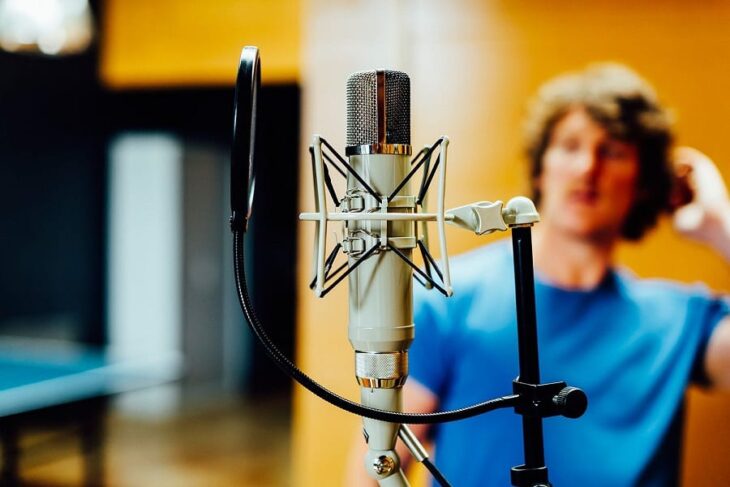For millions of people, singing well seems like an unattainable goal. Maybe you had a friend in school who seemed like a totally natural singing talent, or maybe you’ve historically compared yourself to some of the best singers who ever lived. In any case, you’ve likely attempted to sing better – but you haven’t seen great results.
According to 30 Day Singer, learning how to sing (and becoming a better singer) is probably easier than you think. In just a few days, you can put together a practice routine that can help you develop the fundamentals, and after a few months, you’ll notice your skills noticeably improving.
So what are the hidden strategies, habits, and practices that enable people to grow as singers? What best-kept secrets are worth learning?

Source: spriee.com
The Best-Kept Secrets of Singing Better
These are some of the most important secrets of learning how to sing better:
- You don’t have to be naturally talented. First, understand that you don’t have to be naturally talented to become a good singer. Some people get discouraged when they’re not immediately good at singing – but this is no indication of your full potential. There are some factors influenced by genetics (such as the size, shape, and flexibility of your vocal cords). But for the most part, your singing ability is completely within your control.
- You’re never too old. On a related note, you’re never too old to become a good singer. Over time, our bodies change; your vocal cords, your throat, and your mouth are gradually going to change the shape of your vocal tone, and if they become scarred or damaged, they may hinder some of your abilities. But even in a worst-case scenario, you still have the potential to refine your singing abilities and create more meaningful music.
- Consistency is everything. There’s no boot camp that can make you a better singer after just one week or a few days of practice. Instead, most singers develop their abilities only through the foundation of consistent practice. Even if your sessions are short, like 15 minutes per day, a consistent schedule will allow you to improve your abilities and eventually master this art. The hardest part of becoming a better singer is establishing those initial habits.
- If you don’t use it, you lose it. Your singing ability isn’t on a strict, one-way trajectory. You can improve your skill over time, but it’s also possible for your skill to eventually decline – especially if you don’t keep up with your practice. If you stop singing regularly, you’ll lose control, and you’ll need to work hard to get that skill back.
- Goals both direct and motivate you. As with any form of skill development, it’s important to set goals that fit SMART criteria; your goals need to be specific, measurable, achievable, relevant, and time-bound. Start with baby steps and easily accomplishable goals. For example, you could set a goal to practice 10 minutes a day for a full week. Then, as you get more comfortable and confident, start challenging yourself.

Source: musicianwave.com
- Your physical health matters. You’ll only be able to sing at your fullest potential if your physical health is good (and if you take good care of yourself). Most people know intuitively that it’s much harder to sing when you have a cold or a similar infection – but your health can influence your singing in other ways as well. Drinking excessive quantities of alcohol, for example, can cause your vocal cords to swell, interfering with your singing abilities. And failing to stay adequately hydrated can put undue strain on your voice.
- Posture makes a huge difference. Merely adopting better posture has the potential to turn you into a better singer immediately. Holding yourself upright and employing the use of your diaphragm will allow you to project your voice naturally and have more control over the sounds you make. It also makes it much easier to breathe while singing, giving you greater stamina in the process.
- Stamina and range come with time. When you first start out, you probably won’t have much stamina or range; you’ll have a narrow band of notes that are comfortable to sing and you’ll feel worn out after just a few songs. Don’t let this discourage you; stamina and range will improve with time, as long as you’re focused on improving them. Push your own limits carefully and gradually. If you do, you’ll eventually see the results you’re hoping for.
- There are good and bad ways to practice. Practice is vital for improving, but not all forms of practice are inherently good. If you strain your voice too much, if you practice poor posture, or if you overtrain, you could end up doing more harm to your singing abilities. You could do direct damage to your voice and ingrain bad habits that become hard to shake.
- You can learn from a wide range of sources. There’s a lot of great information on singing available, so you shouldn’t limit yourself on the sources you consult. Read online content, watch videos, and engage with singing experts to learn more helpful tips and tricks. You should also meet and talk to other students learning how to be better singers; you’ll have a much easier time learning with the proper collaboration and support.

Source: musicconsultant.com
Devising a Better Program
Remember, consistency is key. Only through regular, repeated practice will you develop the posture, breathing, stamina, range, and control necessary to improve yourself as a musical artist. This necessitates devising a system you can follow to get the results you want.
The good news is, there’s no single “right” way to do this. You can follow a learning regimen you find online, hire a professional vocal coach to guide you, or assemble your own program from a variety of different sources. As long as you adopt a learning mindset and you’re willing to keep improving physically, you’ll eventually become an expert singer.
